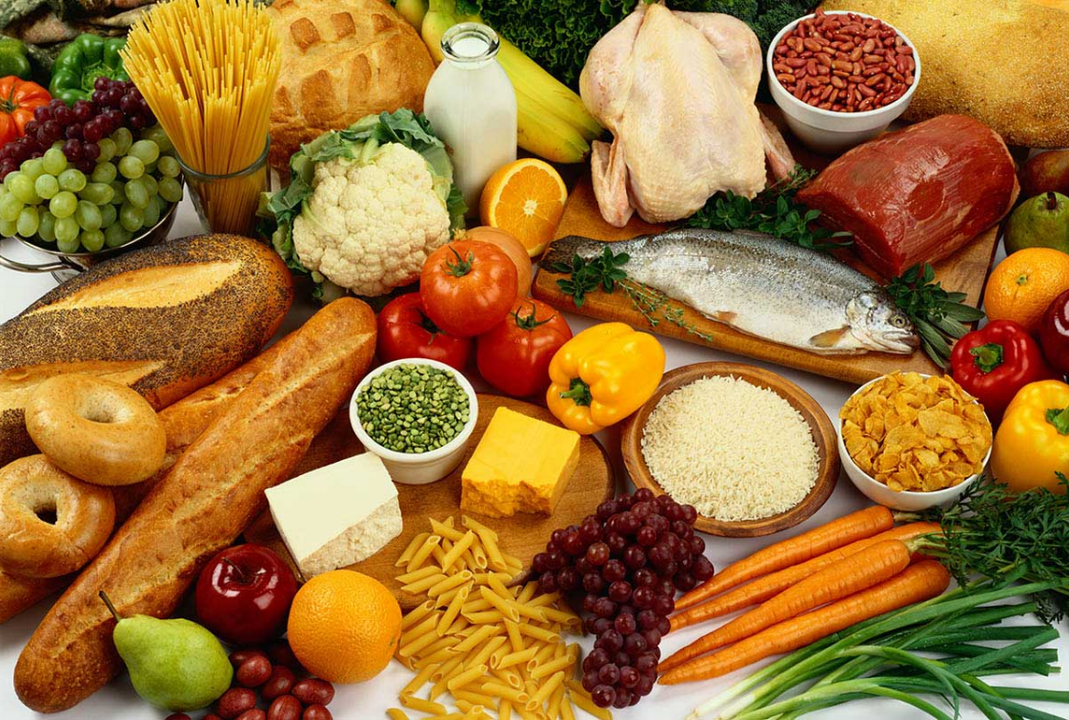In the middle of the 20th century, nutritionists sounded the alarm in relation to the increase in the number of patients suffering from overweight and, consequently, from diseases of the cardiovascular system.
After analyzing the nutrition of residents of European countries, it was found that residents of Mediterranean countries rarely suffer from obesity and are in good health. What is the secret? In the special nutrition of the inhabitants of these regions. It consists only of fresh products. The second secret is olive oil and wine.
According to the research results, they are necessary for the production of hormones that regulate cell metabolism and prevent the development of serious diseases. American doctors are convinced that such nutrition is a way of life that allows you to lose weight not immediately, but forever.

Basic principles of the Mediterranean diet and which foods are preferred
This is a special diet based on products from 16 Mediterranean countries. It includes dishes from Spain, Italy and Greece. The menu of the inhabitants of these villages is mainly composed of products such as: nuts, fatty fish, fruits and vegetables in unlimited quantities, legumes, cereals, aromatic herbs, dairy products, dry wine, cheeses, olive oil. Preference is given to natural plant foods and protein intake within the normal range.
You need to eat 5 times a day. Only fresh fruit between meals. Give preference to carbohydrates for breakfast. It can be pita bread, bread baked with wholemeal flour, durum wheat pasta. Carbohydrates provide healthy energy to help you stay alert throughout the day. Conversely, dinner should be light and made up of vegetables and protein-rich foods. These include: fish, lean meats, eggs.
It is also recommended to consume up to 1 kilogram of vegetables per day. They can be boiled or raw. Allowed foods include carrots, cabbage, potatoes, and zucchini. Make sure you include legumes and grains in your diet.
A glass of red wine is allowed for lunch or dinner. The water should be drunk 7-8 glasses a day, preferably before meals. Nutrition can be regulated. For example, take pumpkin or corn oil instead of olive oil. Choose seasonal fruit.
Cook fish and seafood up to three times a week. Meat should be limited. It is allowed to eat rabbit meat, lean pork tenderloin or beef 100 grams per serving. Bread is used only wholemeal.
Menu of the Mediterranean diet for a week and what foods it includes
You can change the agenda, the main thing is to keep the order of meals.
Monday
- Breakfast: bread, jam, unsweetened tea.
- Afternoon snack: low-fat kefir.
- Lunch: stewed beans with vegetables.
- Second afternoon snack: a glass of white yogurt, cheese and bread.
- Dinner: fish stewed rice, boiled.
Tuesday
- Breakfast: low-fat kefir, muesli.
- First afternoon snack: olives, fish salad.
- Lunch: stewed vegetables and spaghetti.
- Second afternoon snack: boiled egg, herbal tea.
- Dinner: bread - 1 slice, cheese, tomatoes, a glass of wine.
Wednesday
- Breakfast: wholemeal bread with cheese, tea with a spoonful of honey.
- First snack: 1 glass of plain yogurt.
- Lunch: tuna salad, olives.
- Afternoon snack: 3 tbsp. L. muesli, herbal teas.
- Dinner: chicken, rice, apple, wine.
Thursday
- Breakfast: bread, low-fat cottage cheese - 2 tbsp. L. herbal tea.
- First snack: 1 glass of plain yogurt.
- Lunch: stewed vegetables with fish.
- Second afternoon snack: apple, 0. 5 banana.
- Dinner: spaghetti with minced meat, green tea with honey.
Friday
- Breakfast: 2 loaves, cheese 25 grams, green tea.
- The first afternoon snack: fermented baked milk or kefir.
- Lunch: Chicken cooked with vegetables.
- Second afternoon snack: muesli with fruit pieces 0. 5 cups.
- Dinner: fresh vegetables, salmon in wine, herbal tea.
Saturday
- Breakfast: low-fat cottage cheese - 2 tbsp. L. , green tea with honey.
- First snack: plain yogurt.
- Lunch: tuna pasta, green tea.
- Second afternoon snack: natural juice - 1 glass, bread.
- Dinner: wheat porridge with vegetables.
Sunday
- Breakfast: freshly squeezed juice, bread - 2 pieces, an apple.
- First afternoon snack: tuna salad, olives.
- Lunch: 100 grams of boiled beef, 75 grams of rice, herbal tea.
- Afternoon snack: kefir, muesli 3 tbsp. L.
- Dinner: a glass of wine, grilled fish.
The Mediterranean diet is based on the complete elimination of refined oils, foods containing aromas, preservatives and trans fats.

What are the benefits of the Mediterranean diet and how are the foods used with this diet useful?
It is impossible to identify the most effective product in the food system. Only complex nutrition is beneficial. It allows you to stay toned for longer and increases life expectancy by 12 years. It reduces the risk of diseases such as hypertension, diabetes. It has a positive effect on the cardiovascular system.
The body's resistance to atherosclerosis and oncology increases. The weight is normalized. Unlike other diets, the lost pounds don't add up.
The Mediterranean diet is ideal for pregnancy. It will help reduce your baby's risk of allergies and asthma. The healing effect of olive oil is of great importance in nutrition. It lowers cholesterol and prevents the formation of arterial plaques.
Greens improve their taste in food and, with the help of antioxidant properties, reduce the action of free radicals. Seafood is the main source of omega-3 acids. They prevent inflammation, thin the blood and have a beneficial effect on blood vessels, increasing their elasticity.
A variety of fruits and vegetables provide the body with all the nutrients and minerals it needs. The Mediterranean diet is the prevention of diseases of the spine and joints.
Contraindications to the Mediterranean diet
In the high phase of obesity, the Mediterranean diet doesn't work. This requires radical methods of reducing weight. It is not recommended for people suffering from gastrointestinal ulcers. Since his diet contains a lot of high-fiber foods. Not suitable for those who are allergic to seafood.
If there are no contraindications, you can start eating right. This will help you stay young and enjoy life at all times.


































